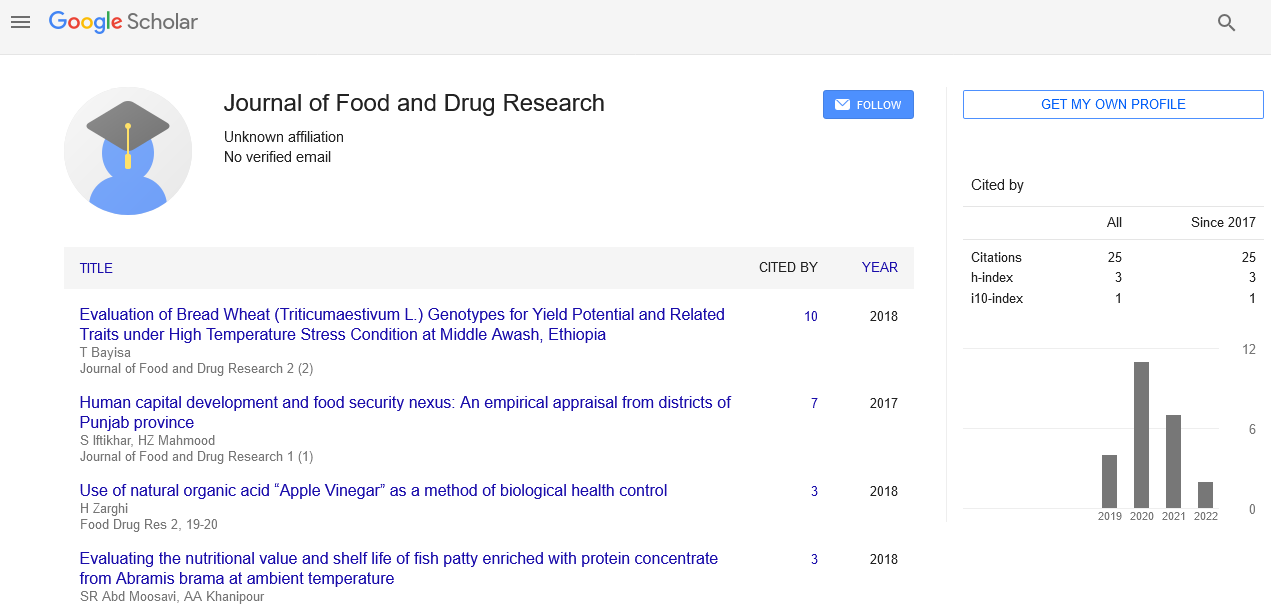
Sign up for email alert when new content gets added: Sign up
Abstract
Food reactions mediated by the immune system in irritable bowel syndrome
Author(s): Stephen Oyeyemi*A chronic functional gastrointestinal illness called Irritable Bowel Syndrome (IBS) is characterized by recurring abdominal pain and a changed defecation pattern. It affects between 5% and 10% of the general population, depending on the parameters utilised, and significantly lowers quality of life. The majority of IBS patients experience an onset or worsening of their symptoms, particularly stomach pain, after consuming particular foods. This begs the question of what part, if any, diet plays in the pathophysiology of IBS. In this review, we outline the various risk factors for IBS and provide an overview of how food might cause IBS by highlighting immunological and non-immune responses to food. Last but not least, we describe recent research showing that food-induced stomach pain in IBS is caused by an immune-mediated mechanism.
Full-Text | PDF





